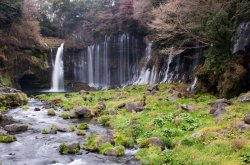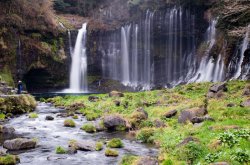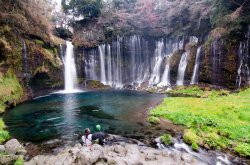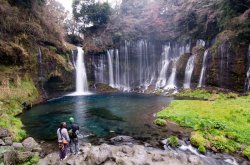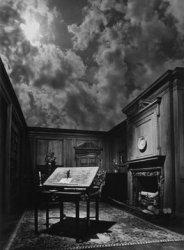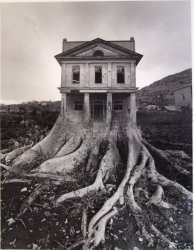All throughout high school me and a friend spent all our time with our photography. We each had $3-4K in equipment, knew all the local studio photographers, and even rented their studios to photograph girls we knew. (all with clothes on) and took many classes and learned from all of them.
We learned how to set up the model how to have her hold her hands, arms, legs, torso, and head to keep her parts from not looking too fat, or too long, or uncomfortable in a pose.
We spent a lot of time with lighting, slaves, strobes and light meters. I doubt most guys now even know what a light meter is.
We went through roll after roll, to get just a few great photos.
Now all I read is about how y'all are so into Photoshop!!?? Which version, which plug-in, blah, blah, blah.
Can't anybody take a great photo without Photoshop anymore?
Some of the girls were very pretty, yet not so photogenic, and others just were, now it seems you can make any chick look good with Photoshop.
Some buildings are so awesome and worth getting a picture of yet there might be a sign or that one ignoramus who wont get out of your way, so just Photoshop them things out of there.
I see such amazing photos on this site, yet wonder how many or how much is actually real.
I had all my equipment stolen while in college,(mostly missed my list of models and their numbers ) so I sorta gave up my little hobby.
) so I sorta gave up my little hobby.
I'd like to get a DSLR, and have fun trying to get some great shots.
I dont have an issue with tweaking a shot for tone and colors, and even really enjoy the HDR's. I realize or eyes can adjust in split seconds to SEE all the range of colors in a scene, and a camera struggles with this. But I cant cut things out, or add things in.
I'd like to see a post of non-doctored non-photoshoped photos.
We learned how to set up the model how to have her hold her hands, arms, legs, torso, and head to keep her parts from not looking too fat, or too long, or uncomfortable in a pose.
We spent a lot of time with lighting, slaves, strobes and light meters. I doubt most guys now even know what a light meter is.
We went through roll after roll, to get just a few great photos.
Now all I read is about how y'all are so into Photoshop!!?? Which version, which plug-in, blah, blah, blah.
Can't anybody take a great photo without Photoshop anymore?
Some of the girls were very pretty, yet not so photogenic, and others just were, now it seems you can make any chick look good with Photoshop.
Some buildings are so awesome and worth getting a picture of yet there might be a sign or that one ignoramus who wont get out of your way, so just Photoshop them things out of there.
I see such amazing photos on this site, yet wonder how many or how much is actually real.
I had all my equipment stolen while in college,(mostly missed my list of models and their numbers
I'd like to get a DSLR, and have fun trying to get some great shots.
I dont have an issue with tweaking a shot for tone and colors, and even really enjoy the HDR's. I realize or eyes can adjust in split seconds to SEE all the range of colors in a scene, and a camera struggles with this. But I cant cut things out, or add things in.
I'd like to see a post of non-doctored non-photoshoped photos.





